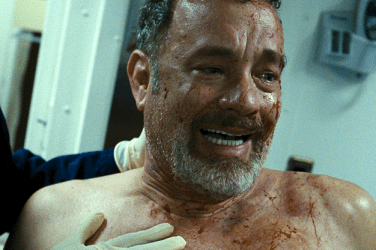As creative as we actors are, we need to recognise that not every technique we use will translate well into every medium. It’s important that we understand the differences between the stage and screen.
Actions speak louder than words
While on the stage it’s important to over exaggerate your actions, on camera those types of actions look fake rather than natural and relatable. Vice versa, subtle and reserved movements are not helpful when acting on a stage; it’s best to be flamboyant and over exaggerated so that everyone in the audience can see what’s going on.
The camera catches everything, and I do mean everything. Learning how to soften your movements and react in subtleties is essential.
This also works the other way. If you are used to acting in front of a camera rather than on a stage, it’s important to learn how to comfortably over act and project your voice.
Rehearsals? I don’t understand the meaning of the word
In theatre, it’s expected that there will be many rehearsals; blocking, lines, etc. But in screen acting, it can be highly unlikely that there will be any rehearsal at all.
When acting for the screen, you will need to learn your lines by yourself on your own personal time. The only “rehearsals” will usually be right before shooting, when you’re learning your blocking. Even then, you should have gone over your lines by yourself.
This can be daunting to those with a rich background in theatre, but it’s a good thing to be aware of if you’re new to screen acting.
For those transitioning into theatre from film, this might be a bit of an easier transition.
Like set life, theatre is chaotic, with set designers, costume directors, orchestras and more running around trying to put everything together. This may come as a sort of comfort to a film actor.
What’s different is the preparation. Unlike film, theatre can only do as well as the rehearsals, that’s why it’s crucial they happen.
Theatre productions usually have months of rehearsals to figure out blocking, lines, costume, lighting, orchestral work, set creation, and the like. This process is what can make or break a production.
Rather than working on your own, you will be working with almost everyone on set at any given moment. Your coordination with every other person is essential.
This can seem a bit daunting for a film actor, as they may be used to working alone or in very small groups, but don’t fear, you can easily adjust, and in time, it will feel completely normal.
Remain in your lane
In theatre, you are given the ability to interact with everyone in the production, whether that be fellow actors, the sound crew, lighting, etc. In film, it’s not quite like that.
Don’t get me wrong, you are welcome to be friendly to anyone and everyone, and it’s helpful if you are, but normally on a set you aren’t going to be directly interacting with many people.
On a set, the actor tends to spend most of their time either alone or in contact with the assistant director and director. You are expected to stay out of the way so that everything can run efficiently. That means going to the green room when you’re asked to do so, not making small talk with every crew member in sight, etc.
Theatre is different in that you are welcome to interact with anyone and everyone, and usually do. Since there are usually months of preparation in advance for a stage performance, everyone gets the opportunity to work together, which is very different from set life.
Quiet on set!
While you are still expected to be quieter when backstage, you don’t need to be completely silent because the play or musical is quite loud.
When on a film set, when “quiet on set” is yelled, everyone is required to be completely silent, you aren’t even able to move because any sound could ruin the take.
If you have a background in theatre, this may be a bit trickier to adjust to at first. If you’re used to film, you might breathe a little easier knowing that it’s alright to talk in the dressing room, as long as your mic isn’t still on.
Hours
In both stage and screen acting, the hours can be fairly exhausting.
In theatre, the hours for rehearsal are usually the same each day, and you cover the same sort of work during those times. Theatre schedules tend to be fairly predictable, but because of this, there is a bit more freedom in your individual use of that time.
In film however, that is not the case. On a set, every second counts. Yes, you get a schedule of what is planned each day, but things change very quickly on a film set.
Many things can slow down or quicken a work day on a film set (lighting can take longer than expected, actors could miss cues, wardrobe could take longer, etc.).
On top of that, production can go for weeks, if not months, both with day and night shoots, so scheduling is always different.
This may seem scary for theatre buffs, but once you get into the swing of things, it becomes second nature.
I hope this article has been helpful for you actors out there who are desiring to step out of your comfort zone, and into the worlds of stage and screen acting.

















